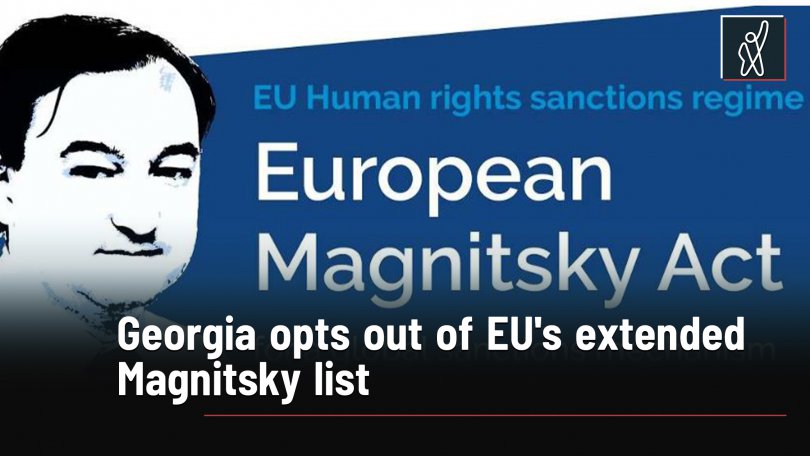
Georgia refused the extension of the European Magnitsky list - restrictions that Brussels imposes on charges of “serious violations of human rights.”
Magnitsky list bans citizens, law enforcement agencies and companies from Russia, Iran, China, North Korea, Syria and other countries from entering the EU and freezes their financial assets on the territory of EU countries.
Josep Borrell EU's High Representative for Foreign Affairs and Security Policy and the Commission Vice President announced the decision.
The extension of sanctions was supported by other EU candidate countries - North Macedonia, Montenegro, Albania, Ukraine, Moldova, Bosnia and Herzegovina.
"Georgia has maintained the practice of recent years regarding the mentioned document, which our partners are informed about," Georgia’s MFA said.
Tbilisi’s decision to abstain from supporting the Magnitsky list comes amid the head of the Global Magnitsky Justice campaign, Bill Browder, raising concerns about the imprisonment of Georgia’s former president Mikheil Saakashvili.
"Georgia’s mistreatment of Mikheil Saakashvili is a shocking human rights abuse and those responsible should be subject to Magnitsky sanctions in all countries that have Magnitsky legislation," Browder said earlier in January, as Mikheil Saakashvili’s health conditions were deteriorating.
Bill Browder pledged to raise Saakashvili’s case in the West.
Along with the EU candidate status, the nine steps defined for Georgia, include alignment with the EU's foreign and security policy, which currently stands at a low 43%.
“As an aspiring EU Member State, we expect Georgia to align with EU foreign policy decisions and actions. There are enlargement countries that meet this commitment with 100% rate. Last year, the alignment rate for Georgia was already at a low 44%, while currently stands at 43%. This holds great significance for the EU as our foreign policy is governed by consensus. With a low alignment rate of 43%, Georgia shows that it has the potential to undermine such consensus. And this is not something taken lightly by Member States,” Josep Borrell said during his official visit to Georgia earlier in September.




